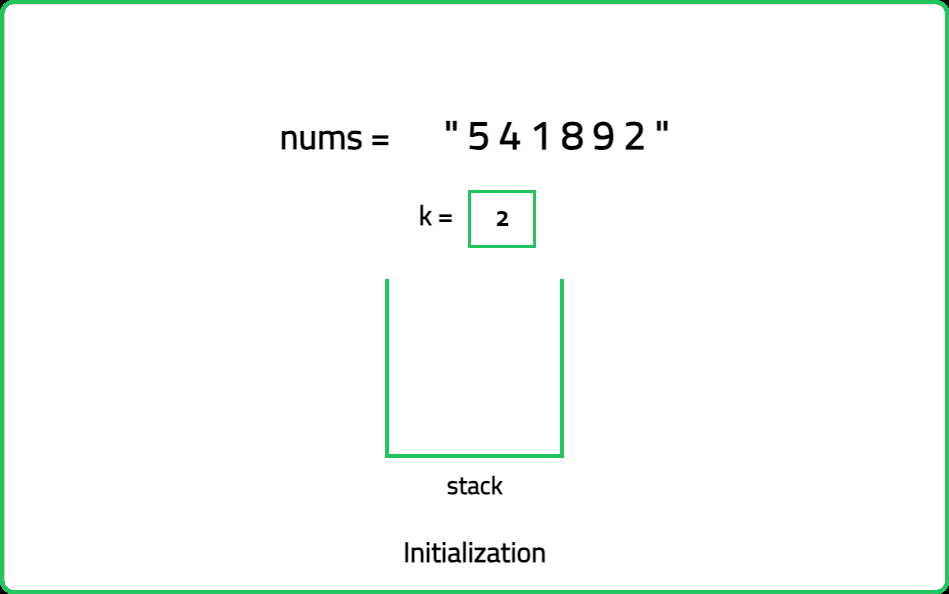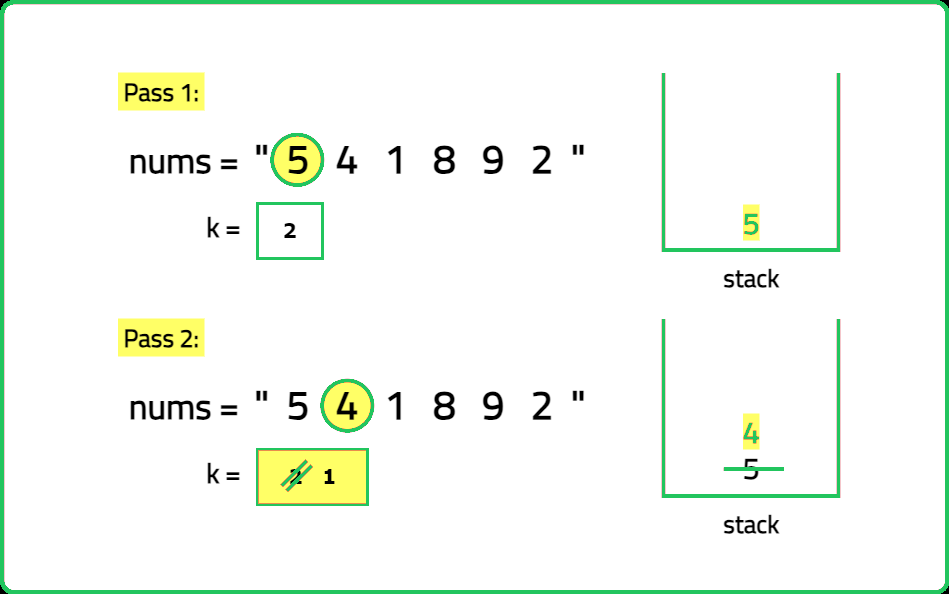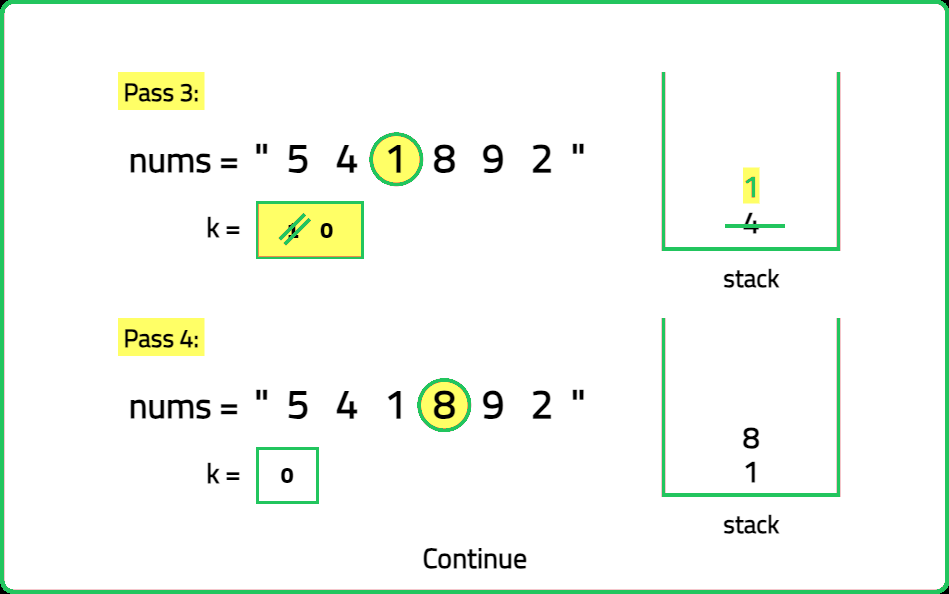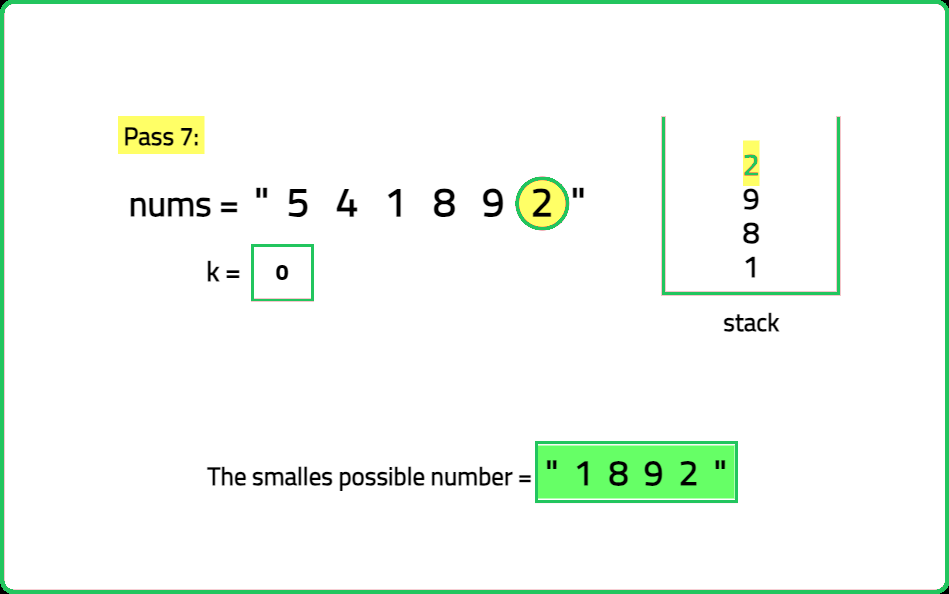Remove K Digits
Stack / Queues
Monotonic Stack
Medium
Given a string nums representing a non-negative integer, and an integer k, find the smallest possible integer after removing k digits from num.
Examples:
Input: nums = "541892", k = 2
Output: "1892"
Explanation: Removing the two digits 5 and 4 yields the smallest number, 1892.
Input: nums = "1002991", k = 3
Output: "21"
Explanation: Remove the three digits 1(leading one), 9, and 9 to form the new number 21(Note that the output must not contain leading zeroes) which is the smallest.
Input: nums = "10", k = 2
Constraints
- 1 <= k <= nums.length <= 104
- nums consists of only digits.
- nums does not have any leading zeros except for the zero itself.
Hints
- Use a monotonic increasing stack to maintain the digits that will form the final number.
- While iterating through nums. If the current digit is smaller than the top of the stack, remove the top of the stack (if k > 0). Push the current digit onto the stack.
Company Tags
Bloomberg
Salesforce
Docker
Pinterest
KPMG
Freshworks
Rakuten
Roche
AMD
Micron Technology
Visa
HCL Technologies
ARM
HashiCorp
Walmart
Byju's
Red Hat
Electronic Arts
Cloudflare
Ernst & Young
Alibaba
Airbnb
Epic Systems
Unity Technologies
Goldman Sachs
Google
Microsoft
Amazon
Meta
Apple
Netflix
Adobe



